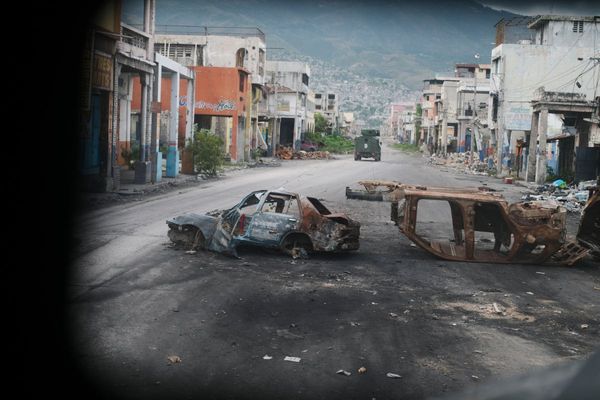One of the markers of Kenyan statesman Raila Odinga was not just his courage in challenging the establishment but his ability to fortify it when circumstances demanded. An example was his willingness in 2007 to set aside his ambition at having been robbed of the presidency in a rigged election by agreeing to a coalition government with his opponent, President Mwai Kibaki.
Odinga espoused compromise and never squandered the political moment. Thus he ceded political ground for the greater national good and stability. This is how he helped to quell violence following disputed presidential elections in 2007. To his admirers this showed political maturity and astuteness.
This was not always interpreted as courageous, however. Some detractors labelled it as political weakness and betrayal. Despite numerous compromises, his detractors hardly ceded ground.
Just before his death, some of his detractors had labelled him the ultimate betrayer for solidifying his relationship with President William Ruto. Odinga worked with Ruto under what they termed broad-based government, formed at the height of mass protests to oust Ruto. Odinga propped up the embattled government under pressure over a controversial taxation bill and other problems. The nomination and sebsequent appointment of party members to the beleaguered government immediately deflated the protests. This demonstrated Odinga’s unmatched influence in Kenya’s politics.
I am a scholar of politics who has studied Kenya’s transition from authoritarianism to more democratic forms of politics. My 2018 book Political Power and Tribalism in Kenya examined the salience of ethnicity in the country’s multiparty politics.
It’s my view that Odinga employed compromise to integrate Kenya and hopefully live to fight another day. He had either official or informal working arrangements with all of Kenya’s five presidents bar one. He was therefore party to top decision making in the country without the benefit of executive power.
Had he thrown his weight behind the protest movement in 2024, it is highly likely that Kenya would have dissolved into chaos, as witnessed after disputed elections in 2007. He held that the mass protests in 2025 could have resulted in state collapse and bloodletting had he not intervened.
Through chutzpah and guile, Odinga escaped all attempts by his detractors to reduce him to an ethnic leader. Instead, he built alliances and connected with the working-class and rural poor, especially young Kenyans, who identified with his courage in Kenya’s human rights and democracy struggle.
Odinga: The bogeyman of Kenya’s establishment
A former Kenyan vice president, Michael Wamalwa Kijana, once described Odinga’s relationship with Kenyans as either Railamania or Railaphobia – people either passionately liked or irrationally feared him.
He commanded fanatical support among his co-ethnics and across Kenya, especially in his strongholds. But a section of Kenyan society opposed him, especially the clique that has controlled executive power and economic privileges since 1963.
Although Odinga was part of the establishment and rose to the position of prime minister (2008-2013), the only second Kenyan to occupy the post, he was treated with suspicion and disdain especially over the male circumcision rite that his community did not traditionally practise. His father, the founding vice president of Kenya who became the doyen of opposition politics, Jaramogi Oginga Odinga, suffered the same fate.
Raila Odinga’s detractors, among the elite and populace, mocked him while he was sick and irreverently celebrated his death.
This grouping, opposed to a capable welfare state based on inclusivity and egalitarianism, showed almost irrational antipathy towards Odinga. The establishment consistently schemed against him. His mass appeal, socialist orientation and populist politics posed a threat to the most reactionary cohort of the Kenyan political elite. Odinga’s uncompromising stance against the one-party dictatorship which earned him nine years of detention without trial, and implicated him in an abortive coup in 1982, did not endear him to all.
Odinga’s capacity to reinvent himself politically was astounding. Despite losing presidential elections five times, on several occasions because of state instigated fraud, he was undiminished. He was widely known in diplomatic circuits across Africa and globally. Memorably he mediated the Ivorian conflict following violently disputed elections in 2010. Thus, Odinga was among the pantheon of Kenya’s greats, a pan-Africanist and an internationalist.
Kenya’s moment of introspection
His death affords Kenyans an opportunity to reflect on the state of the Kenyan nation. He personified Kenya’s contradictions. Odinga’s long political career exhibited hope and despair for his supporters. In a country hamstrung by the ideology of ethnicised politics, there could not have been a more opportune moment for introspection.
Some of Odinga’s political moves turned out to be miscalculations. For instance, the grand coalition government formed in the wake of the 2007-2008 post-election maelstrom stabilised Kenya but did not address long term historical injustices.
Although it was the most inclusive since independence, it was bloated and mired in corruption, and perpetrated human rights violations. This rapprochement sealed his fate because it gave his opponents room to regroup. They regained the political initiative and eventually locked him out of the presidency forever.
His relationship with Ruto appeared to be more trusting than earlier ones, but Odinga still seemed to be the outsider in Kenya’s political matrix. Odinga’s shortcomings humanised him. Giants can have feet of clay.
Odinga bows out as the people’s president; the president that Kenya never had.
Westen K Shilaho does not work for, consult, own shares in or receive funding from any company or organisation that would benefit from this article, and has disclosed no relevant affiliations beyond their academic appointment.
This article was originally published on The Conversation. Read the original article.







